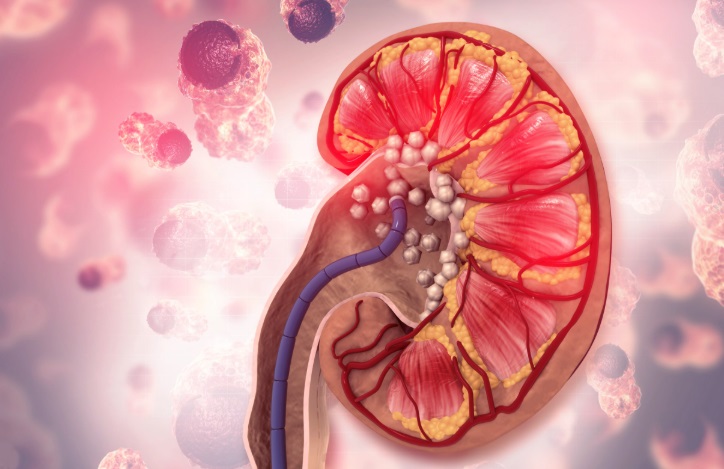Nikhil Prasad Fact checked by:Thailand Medical News Team Aug 15, 2025 6 months, 1 day, 3 hours, 8 minutes ago
Medical News: How COVID-19 Could Set the Stage for Kidney Stones
Researchers from the University of Louisville, USA, and Lady Hardinge Medical College, India, have uncovered a potential new complication of COVID-19 that could affect millions of people long after infection — an increased risk of kidney stone disease (KSD). Their review suggests that the SARS-CoV-2 virus can cause long-lasting changes to the body’s metabolism, immune system, and gut bacteria, all of which may combine to create a “stone-friendly” environment in the kidneys. According to this
Medical News report, these effects are tied to both the initial illness and lingering post-COVID symptoms.
 COVID-19 Triggers Kidney Stone Formation Through Hidden Biological Damage
The Role of Sulfur Metabolism and Homocysteine
COVID-19 Triggers Kidney Stone Formation Through Hidden Biological Damage
The Role of Sulfur Metabolism and Homocysteine
At the center of this proposed mechanism is a vital process known as the trans-sulfuration pathway, which helps convert homocysteine — a potentially harmful amino acid — into cysteine, an antioxidant building block. COVID-19 appears to disrupt this pathway, allowing homocysteine to accumulate in the blood. High levels of this compound can damage blood vessels in the kidneys, trigger inflammation, and promote crystal formation, especially in people with underlying conditions like homocystinuria. This disturbance also lowers the production of protective molecules like hydrogen sulfide and glutathione, further increasing oxidative stress.
Mitochondrial Damage and Gut Microbiome Changes
The virus’s spike protein not only allows entry into cells but also interferes with mitochondrial function — the cell’s energy centers. Damaged mitochondria produce less energy, more harmful reactive oxygen species, and disrupt the kidney’s ability to manage minerals. At the same time, COVID-19-related gut microbiome imbalances may encourage the growth of bacteria that produce oxalate, a key ingredient in calcium oxalate stones, while reducing oxalate-degrading species. This combination raises urinary oxalate levels, a major risk factor for stone formation.
Inflammation and Fibrosis as Long-Term Drivers
Even after the acute infection ends, low-grade inflammation can persist. Immune cells such as M1 macrophages and neutrophils can release substances that damage kidney tissue, weaken protective barriers, and trap crystals, helping them grow into stones. Changes in key enzymes and proteins, including NGAL, ADAMTS13, and MMPs, can promote fibrosis — stiffening of kidney tissue — which may make stones more likely to form and recur.
What This Means for Long COVID Patients
While the exact scale of the risk is still unknown, early data suggest that post-COVID patients may be experiencing more kidney-related issues, including kidney stones. The researchers believe that targeting oxidative stress, restoring sulfur metabolism, and improving gut microbiome balance could help reduce this risk. They also highlight the need for long-term monitoring
of kidney health in people recovering from COVID-19.
The study findings were published in the peer reviewed journal: Biomolecules.
https://www.mdpi.com/2218-273X/15/8/1163
For the latest COVID-19 News, keep on logging to Thailand
Medical News.
Read Also:
https://www.thailandmedical.news/news/breaking-33-common-drugs-may-be-secretly-causing-kidney-stones-in-thousands-of-people
https://www.thailandmedical.news/news/thailand-medical-researchers-discover-that-lactobacillus-acidophilus-can-prevent-kidney-stone-development
https://www.thailandmedical.news/news/boosting-antioxidants-intake-can-help-prevent-kidney-stones
